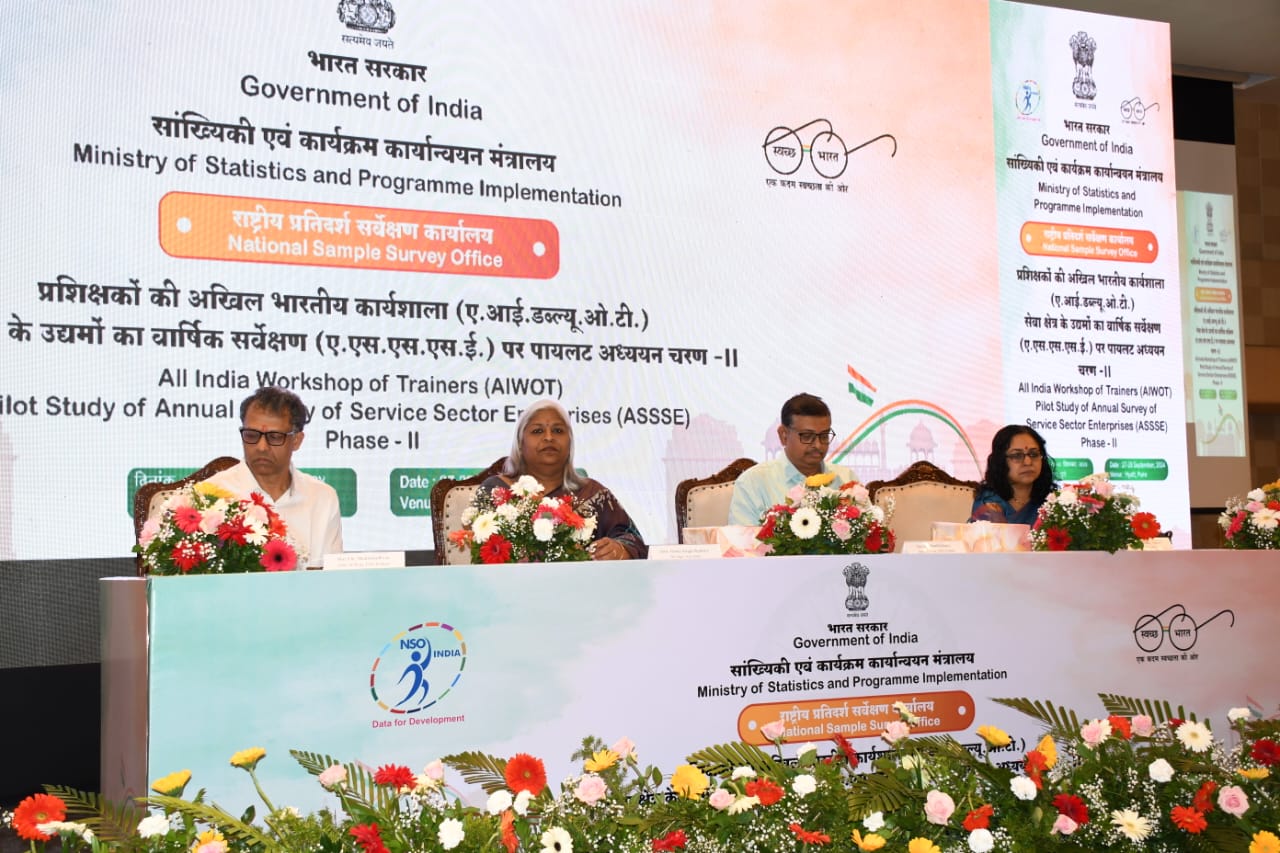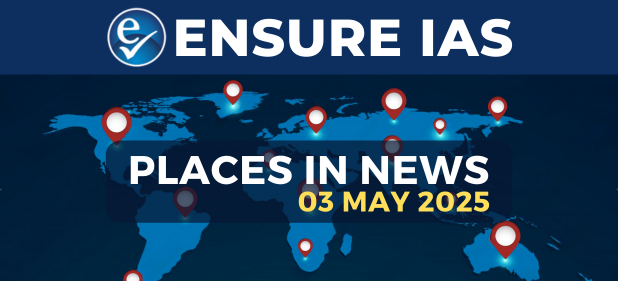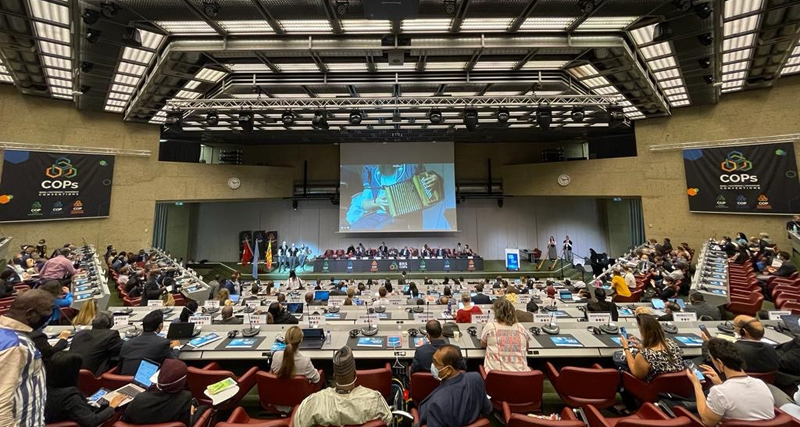- Courses
- GS Full Course 1 Year
- GS Full Course 2 Year
- GS Full Course 3 Year
- GS Full Course Till Selection
- CSAT
- 5 LAYERED ARJUNA Mentorship
- Public Administration Optional
- Online Program
- GS Recorded Course
- NCERT (Recorded 500+ Hours)
- Polity Recorded Course
- Geography Recorded Course
- Economy Recorded Course
- AMAC Recorded Course
- Modern India, Post Independence & World History
- Environment Recoded Course
- Governance Recoded Course
- Science & Tech. Recoded Course
- International Relations and Internal Security Recorded Course
- Disaster Management Module Course
- Ethics Recoded Course
- Essay Recoded Course
- Current Affairs Recoded Course
- ABOUT US
- OUR TOPPERS
- TEST SERIES
- FREE STUDY MATERIAL
- VIDEOS
- CONTACT US
MISSION VATSALYA SCHEME
MISSION VATSALYA SCHEME
17-07-2023
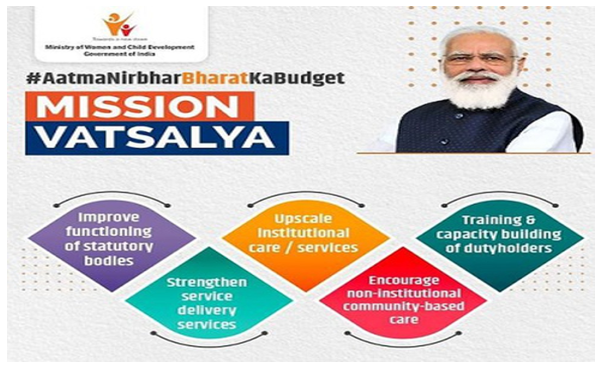
Latest Context
The Ministry of Women and Child Development established Mission Vatsalya to guarantee the protection and safety of children in India.
- Children who are eligible for help are likely to be in tough situations, such as orphans, street children, etc. The Child Welfare and Protection Committee (CW&PC) at the village level will identify these children. The Mission Vatsalya Scheme's sponsorship component will provide support for these children.
- On the advice of the Child Welfare Committee (CWC) and with the agreement of the Sponsorship and Foster Care Agreement Committee (SFCAC), sponsorship facilities will be made available.
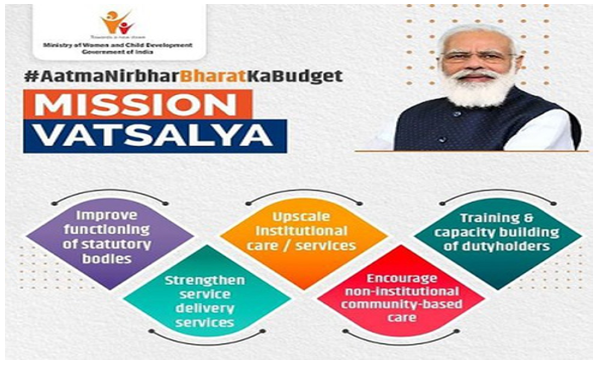
What is Mission Vatsalya?
-
Historical Perspective:
- Pre-2009: Ministry of Women and Child Development introduced three schemes:
- Integrated program for street children.
- Juvenile justice programs for children in need of care and protection and children in conflict with the law.
- Scheme for assistance to children's homes.
- 2010: These schemes merged into the Integrated Child Protection Scheme.
- 2017: Renamed as the Child Protection Services Scheme.
- 2021-22: Reintroduced as Mission Vatsalya.
-
About:
- Umbrella scheme for child protection services in India.
- Aims to provide a healthy and happy childhood for every child in the country.
- Parts of Mission Vatsalya include:
- Enhancing the functioning of statutory bodies.
- Offering emergency outreach services.
- Promoting non-institutional community-based care.
- Strengthening service delivery structures.
- Upscaling institutional care and services.
- Training and capacity building.
-
Objectives:
- Provide opportunities for children to reach in all spheres and realise their full potential.
- Encourage the creation of a sensitive, helpful, and coordinated ecology for child development.
- Help states and union territories put the 2015 Juvenile Justice Act into effect.
- The Sustainable Development Goals (SDGs) must be accomplished.
-
Modes of Non-Institutional Care for Children:
-
Sponsorship:
- Government-Aided Sponsorship: Financial assistance provided through government funds.
- Private Aided Sponsorship: Financial assistance provided through private sources or individuals.
-
Foster Care:
- An unrelated family takes on the duty of looking after and rehabilitating the youngster.
- The foster parents receive financial assistance in exchange for raising the child.
-
Adoption:
- Finding potential adoptive homes for kids who are legally eligible to be adopted.
- The adoption procedure is facilitated by the Central Adoption Resource Authority (CARA).
-
Aftercare:
- When a child turns 18 and leaves a childcare institution, financial help is offered.
- They can reintegrate into society and develop independence with the aid of this support.
- From the age of 18 up to 21 years, with a potential extension of up to 23 years, assistance may be extended.
- Note: To administer and oversee the Sponsorship and Foster Care plan as stipulated by the Mission, there will be an SFCAC in each district.
What are Child Welfare Committees?
- To safeguard and care for children in need, state governments establish Child Welfare Committees (CWCs) for each district or set of districts.
- Each CWC consists of a chairperson and four members, at least one of whom must be a woman and one of whom must be an authority on children's issues.
- Every district must have a CWC, according to the Juvenile Justice (Care and Protection of Children) Act, 2015.
- Subject to revisions, CWCs carry out the duties and responsibilities outlined in the Juvenile Justice Act/Rules.
- In situations involving the care, protection, treatment, development, and rehabilitation of children, CWC acts as a bench of magistrates.
- States and UTs can establish CWCs and ensure their efficient operation with the help of Mission Vatsalya, which also provides the necessary infrastructure and funding.
Must Check: IAS Coaching Centre In Delhi

